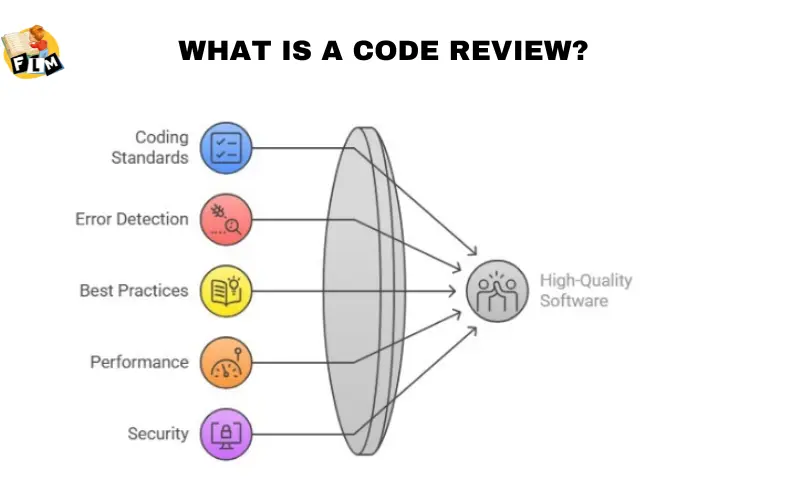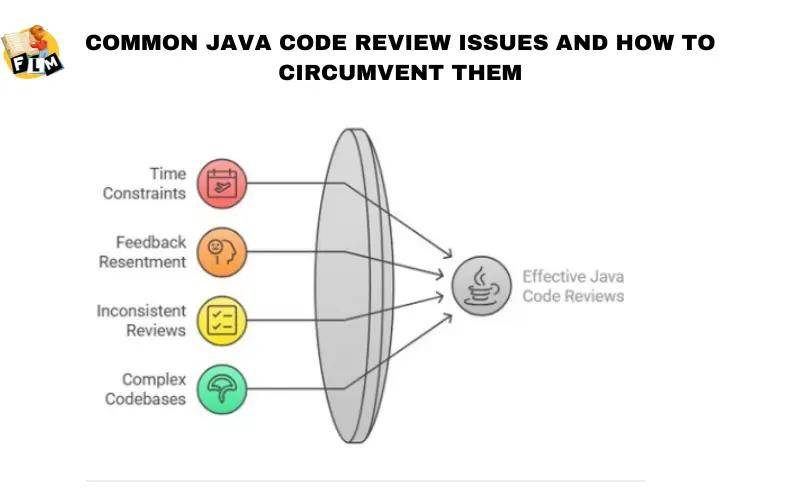Writing code in software development is just half the story. Making sure that the code is efficient, free of bugs, and maintainable is just as important. This is where Code Reviews for Java development play a key role as a factor. Code reviews improve the quality of code, catch bugs early, and make sure best practices are followed within the development team
What is a Code Review?

Code review is a formal process by which developers review one another’s code prior to merging it into the main project. The major objectives of Code Reviews for Java development are error detection, readability of code, and maintaining uniformity in the codebase. This is done by
- Verifying violations of coding standards
- Detecting logical errors and potential bugs
- Validating adherence to best practices in the code
- Enhancing performance and scalability
- Improvement of security and data protection
By performing good code reviews, Java developers can have high quality software with collaboration and knowledge sharing between the team.
Why Code Reviews are a Must for Java Development
Improves Code Quality
One of the major reasons to perform Code Reviews on Java projects is to enhance code quality. The second pair of eyes will catch issues that the original developer might have missed. Code reviews ensure
- Proper application of design patterns and architecture concepts
- Clean code and maintainable code
- Efficient use of Java libraries and frameworks
Less Bugs and Security Vulnerabilities
Bugs and security vulnerabilities are expensive if they are caught at the later stage of the development process. Code reviews catch
- Null pointer exceptions and memory leaks
- SQL injection and other security vulnerabilities
- Inefficient loops and performance bottlenecks
By catching these early, teams save themselves expensive debugging and rework
Fosters Team Learning and Collaboration
Code reviews are not bug identification; they are also a great learning opportunity. Junior developers can learn from senior developers by reading their code. Team members can
- Exchange knowledge on Java best practices
- Exchange different solutions to the problem
- Enhance communication and collaboration
Maintains Codebase Consistency
When more than one developer is working on a project, it is difficult to maintain a consistent coding style. Code reviews impose
- A uniform coding style (e.g., indentation, naming conventions)
- Good comments and documentation
- Consistent error handling practices
Enhances Performance and Scalability
written code generates performance problems in Java applications. Code review maximizes
- Database query execution
- Memory allocation and garbage collection
- Thread management and concurrency problems
Making the application run efficiently makes it more scalable and resilient
Best Practices for a Successful Java Code Reviews
In order for Code Reviews of Java development to be effective, these are the best practices developers should adhere to
Define Clear Code Review Guidelines
Coding standards make the review process easy. Define guidelines for
- Alignment and indentation of code
- Error handling and logging
- Naming conventions and documentation
Use Automated Code Review Tools
Manual code reviews are time consuming. Automated tools can streamline the process. Some of the most popular tools used to review Java code are
- SonarQube – Reviews code quality and identifies vulnerabilities
- Checkstyle – Proofs against coding standards
- FindBugs – Marks potential programming errors
These tools catch most errors before human reviewers
Keep Code Reviews Focused and Manageable
Don’t review lots of code at once. Instead
- Split code into bite-sized pieces
- Focus on particular areas such as performance, security, and logic
- Restrict reviews to 400-500 lines of code at one time
This maintains the process simple and avoids fatigue
Offer Constructive Criticism
While giving code reviews, it’s crucial to offer criticism constructively and respectfully. Rather than telling,
“This code is incorrect,” tell, “Utilize a HashMap instead of a List to improve performance.”
Suggest and provoke discussion
Encourage Peer Reviews
Rather than depending on experienced developers alone, encourage peer review between team members. This will promote a team culture whereby the team is learning from one another
Conduct Regular Code Reviews
Code reviews should be a regular occurrence, not sporadic. Enforce
- Daily or weekly code reviews
- Post-merge reviews for further examination
- Retrospective meetings to share review conclusions
By enforcing code reviews as a routine, Java teams can enhance their codebase on a continuous basis
Common Java Code Review Issues and How to Circumvent Them

Although Code Reviews for Java code are helpful, they are a problem in several ways. The following are some solutions to them
Time Constraints
- Solution: Hold special times apart for review and employ automation for acceleration of process
Resentment of Feedback
- Solution: Practice good team spirit where feedback will be received in the sense that it’s time to make oneself better instead of being considered for criticism
Spaced-Out Reviews
- Solution: Apply checklists and coding guidelines to implement uniformity in reviews throughout the team
Large and Complex Codebases
- Solution: Split reviews into parts and review code frequently to avoid work overload.
Conclusion
Code reviews are a very important part of Java development because they enhance code quality, decrease bugs, and impose consistency. Code reviews also encourage cooperation and allow for increased learning on the part of developers
Suggested Articles
- Understanding Agile Methodology in Software Development
- How to Build an Impressive Portfolio as a Java Developer
- Keeping Up with the Latest Java Updates and Features
Future-Proof Your Career with FLM’s AI-Powered Java Full Stack Development!
Java Full Stack Developer Training
Learn Java, Spring Boot, React.js, SQL, and AI automation to build powerful web applications. AI is transforming software development, and companies need skilled Java full stack developers who can integrate AI-driven solutions. This 5+ month live, interactive training will help you master real-world projects, automation tools, and industry best practices.
What You’ll Gain?
- High Demand – AI Skills Give You a Competitive Edge
- Earn ₹12 LPA+ with Java Full Stack & AI Expertise
- 100% Live, Expert-Led Training
- AI-Powered Development – Automate Coding & Debugging
- 7 Major & 7 Mini Real-World Projects for Hands-On Experience
- Mock Interviews, Resume Building & Career Guidance
- Exclusive: 2-Year Recording Access for the First 100 Enrollees
- Job-Ready Curriculum with Real-World Applications
Unlock your future with FLM’s AI-Powered Java Full Stack Development — limited seats remaining! Enroll Now
Visit: frontlinesedutech.com | Click Here to Enroll
WhatsApp: 8333077727

